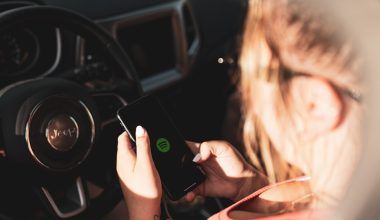Imagine your music being featured in a blockbuster movie, a viral video, or a trending ad campaign. Sounds exciting, right? That’s exactly what happens when you sell your music for commercial use. It’s one of the best ways for musicians to earn steady income and reach new audiences.
Selling your music commercially isn’t just for famous artists. With the right tools and strategies, anyone can do it. Whether you’re an indie musician, producer, or composer, this guide will show you how to turn your passion into profit.
What Does Selling Music for Commercial Use Mean?
When you sell your music for commercial use, you’re allowing businesses or creators to use your tracks for their projects. These projects could include:
- Advertisements: Background music for commercials or campaigns.
- Movies & TV: Soundtracks or theme songs.
- Social Media Content: Music for YouTube or TikTok creators.
- Video Games: In-game soundtracks or ambient music.
- Corporate Videos: Presentations or promotional videos.
Each time someone uses your music commercially, you earn money through licensing fees or royalties. It’s like renting out your art while keeping ownership of it.
Why Should You Sell Your Music for Commercial Use?
There are plenty of reasons to explore this opportunity. Here are a few:
1. Earn Extra Income
Selling your music commercially creates a new income stream. You can charge a one-time fee or earn royalties whenever your track is used.
2. Reach New Audiences
When your music appears in a film, ad, or game, it’s introduced to people who might never have found you otherwise.
3. Boost Your Credibility
Being associated with big brands or media projects can elevate your career and open doors to more opportunities.
4. Long-Term Potential
A single licensing deal can lead to more partnerships and projects down the line.
Copyright Your Music
Before you sell your music, you need to protect it. Copyright ensures that your work is legally yours, and no one can use it without your permission.
How to Copyright Your Music
- Document Your Work: Save drafts, lyrics, and recordings to prove you created them.
- Register with a Copyright Office: Most countries have official copyright offices where you can register your work.
- Use ISRC Codes: These codes track your music’s usage and help ensure you get paid.
Copyright is the foundation of selling your music. It gives you control and ensures you’re compensated fairly.
Understand Music Licensing
Licensing is how you allow others to use your music. There are different types of licenses, each suited to a specific purpose:
Types of Music Licenses
- Sync License: For use in movies, TV shows, and ads.
- Mechanical License: Covers the reproduction of music (like CDs or digital downloads).
- Performance License: Needed for live or broadcast performances.
- Royalty-Free License: Clients pay a one-time fee for unlimited use under certain conditions.
Licensing agreements spell out how your music can be used, ensuring you’re paid appropriately.
Choose the Right Platforms to Sell Your Music
There are many platforms designed to help you sell your music for commercial use. Here are some of the best:
1. Stock Music Libraries
These platforms are perfect for licensing royalty-free music:
- AudioJungle
- Pond5
- PremiumBeat
2. Direct Licensing Platforms
These platforms connect you directly with clients:
- Songtradr: Great for licensing music to filmmakers and brands.
- Deliver My Tune: Offers tools to distribute your music to over 100 platforms with transparent royalties.
3. Build Your Portfolio
Having a professional portfolio showcases your music in one place. Services like Deliver My Tune make it easy to create a sleek and shareable portfolio.
Set the Right Price for Your Music
Pricing your music can feel tricky, but it’s important to get it right. Here’s what to consider:
- Usage: Music for big-budget films or ads usually costs more than for YouTube.
- Exclusivity: Exclusive rights should be priced higher than non-exclusive licenses.
- Length: Full-length tracks often fetch higher prices than short loops or snippets.
Research pricing on platforms like AudioJungle to stay competitive.
Market Your Music for Commercial Use
You can’t sell your music if people don’t know about it. Here’s how to market it effectively:
1. Optimize Your Metadata
When uploading your music, include descriptive keywords like “uplifting corporate music” or “cinematic background score.” This makes your tracks easy to find.
2. Build Your Online Presence
Use Instagram, TikTok, and LinkedIn to share snippets of your music and connect with industry professionals.
3. Network with Creators
Collaborate with YouTubers, filmmakers, or businesses that might need music for their projects.
4. Join Competitions
Some platforms offer opportunities to license your music through contests. Winning these can give you exposure and deals.
Real-Life Success Stories
Selling music for commercial use isn’t just a dream—it’s a reality for many artists. Here are a couple of inspiring examples:
1. From Hobbyist to Movie Composer
Sarah started as a bedroom musician but sold her tracks on stock music platforms. One of her songs got featured in a Netflix movie, and now she earns full-time from music.
An indie composer licensed his music for a viral YouTube video. The exposure led to a spike in his streaming numbers and more licensing deals.
Handle Legal and Technical Details
1. Draft Licensing Agreements
Clearly outline the terms, including how the music will be used, for how long, and payment details.
2. Track Usage
Use tools like Content ID or join a Performance Rights Organization (PRO) to monitor where and how your music is being used.
3. Avoid Copyright Conflicts
Make sure you have the rights to all elements in your track, including samples and loops.
Challenges in Selling Music for Commercial Use
While it’s exciting to sell your music commercially, it’s not without challenges:
- High Competition: There’s a lot of music out there. Standing out requires effort.
- Negotiations: Pricing and licensing terms can be tricky to navigate.
- Copyright Issues: Unauthorized use of your music is a risk you need to manage.
The Future of Selling Music
As technology evolves, so do opportunities for musicians. Here’s what to expect:
- AI Matching: Platforms are using AI to match music with buyers more efficiently.
- Blockchain Payments: Instant, transparent royalty payments using blockchain technology.
- Growing Demand: With more content creators than ever, the need for music is skyrocketing.
Conclusion
Selling your music for commercial use is one of the most rewarding ways to make money as a musician. Whether you’re licensing tracks to a brand, composing for a game, or sharing your work on stock music platforms, the possibilities are endless.
Take the first step by protecting your work with copyright, building a strong online presence, and choosing the right platforms. The world is ready to hear your music—so go ahead and let it shine!
Related Articles:
For further reading, explore these related articles:
- How to Start a Digital Music Distribution Company: A Step-by-Step Guide
- How to Distribute Your Own Music Like a Pro: A Complete Guide for Independent Artists
- How to Distribute Music Independently: A Comprehensive Guide for Aspiring Artists
For additional resources on music marketing and distribution, visit Deliver My Tune.






